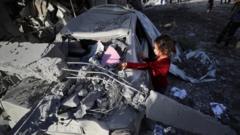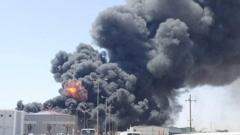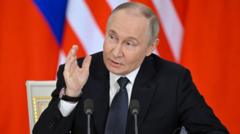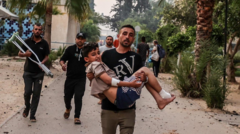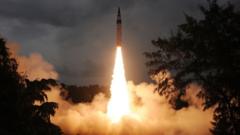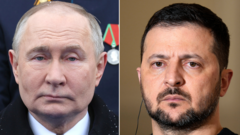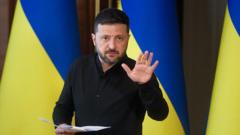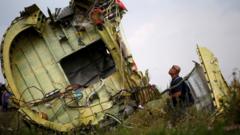In Eastern Ukraine, soldiers cautiously consider the potential for peace talks with Russia amid a relentless conflict that has led to substantial casualties. While some express skepticism about negotiations, they overwhelmingly agree that giving up territory may not lead to lasting peace.
Hope Amidst Chaos: Ukrainian Soldiers Speculate on Peace Talks with Russia
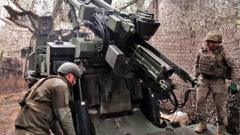
Hope Amidst Chaos: Ukrainian Soldiers Speculate on Peace Talks with Russia
Front-line soldiers in Ukraine reflect on the possibility of peace negotiations with Russia, weighed down by the losses they've experienced.
As Ukrainian soldiers brace for intense conflict just miles from the eastern city of Pokrovsk, the urgent question of peace resounds in their minds. The landscape is dotted with devastating scenes of war captured by drones, showcasing damage far greater than witnesses observed months before. Among these soldiers is "Kozak," who views the recent call from Russia for direct negotiations as a glimmer of hope, questioning if this could signify a turn towards ending a "never-ending bloodbath," as aptly noted by US President Donald Trump.
The stark reality captured in the drone footage reveals the relentless battle for control over this strategic transport hub within the Donetsk region. With the ongoing artillery strikes targeting Russian positions, soldiers are keenly aware of the cost of this conflict—both in human life and territorial integrity.
Yet, amidst the chaos, a sense of cautious optimism grows. Officers like Kozak recognize that Russia's military capabilities have waned since the outset of the conflict, suggesting a possible shift in the ongoing hostilities. "I want to believe this would be the beginning of the end of the war," he asserts, reflecting a sentiment echoed among weary troops who have borne the brunt of warfare for years now.
Despite some voices advocating for negotiation, soldiers like Yurii remain apprehensive. “If we give up territory now, they will not stop,” he warns, emphasizing the importance of not yielding ground to adversaries who have shown a proclivity for aggression. In a heartfelt moment, he reflects on family and the desire for peace, yet his reality remains tethered to the frontline's grueling demands.
As the artillery units power up, soldiers acknowledge the evolving nature of warfare, with new drone technologies posing fresh challenges. The desperate need for ammunition is palpable, as Kozak emphasizes the stakes involved in repelling the assaults they face daily.
The realities of war extend beyond the battlefield, affecting families torn apart by violence. Yana Stepanenko makes her way to her son's grave, mourning his loss as a drone operator who perished in combat. Her grief lingers not just for her child but for the countless lives lost yet again amidst failed peace talks. “Putin's hunger for our land is insatiable,” she asserts resolutely, wishing for a future free from Russian occupation.
In a nation scarred by conflict, the specter of war hangs over every conversation. As soldiers and families navigate their reality with a bitter mix of hope and despair, the prospect of peace remains elusive, fraught with the heavy weight of past sacrifices.




